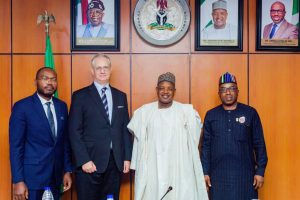
The Federal Government is to benefit from a $500 million loan facility from the World Bank to finance the Human Capital Opportunities for Prosperity and Equity (HOPE) project.
In a significant move to address longstanding challenges in Nigeria’s education and healthcare sectors, the World Bank has approved a $500 million loan under the Human Capital Opportunities for Prosperity and Equity (HOPE) Governance Programme. This funding aims to tackle critical workforce and infrastructure gaps while enhancing service delivery systems in these vital areas.
A Strategic Approach to Human Capital Development
The loan is part of a broader $2 billion initiative aimed at improving Nigeria’s human capital outcomes, which have consistently ranked among the lowest globally. With Nigeria’s Human Capital Index indicating that a child born today would only achieve 36% of their productive potential under current conditions, this intervention is timely and crucial.
The loan will focus on three main areas:
1. Workforce Strengthening: It will prioritize recruiting, deploying, and managing qualified professionals in basic education and primary healthcare. For example, addressing disparities between urban and rural regions and ensuring that underserved areas receive adequate staffing.
2. Improving Financial Systems: Measures like integrating National Identification Numbers (NIN) and Bank Verification Numbers (BVN) will help curb payroll fraud, streamline payments, and ensure greater accountability in resource allocation.
3. Infrastructure and Governance Reforms: Enhanced fiscal transparency, accountability, and efficiency in public financial management will form the backbone of this initiative, promoting sustainable progress.
Addressing Regional and Gender Disparities
Special attention will be given to bridging the educational and healthcare gaps between Nigeria’s northern and southern regions, where disparities remain stark. Additionally, 30% of new recruits are targeted to be women, promoting inclusivity and gender balance in these critical sectors.
Complementary Programs for Broader Impact
The HOPE-Education and HOPE-Primary Health Care components complement the loan. These projects aim to improve educational infrastructure, provide grants for community-based schools, and strengthen primary healthcare services across the country. Collectively, these efforts align with Nigeria’s Universal Basic Education (UBE) framework and broader Human Capital Development strategy to create a skilled workforce by 2030.
Challenges and Opportunities
While the loan provides an opportunity to address systemic weaknesses, concerns about Nigeria’s rising debt profile loom large. Currently, the country owes the World Bank over $15 billion, making it the third-largest borrower under the International Development Association. Effective implementation and transparent use of these funds will be critical to ensuring the loan achieves its intended outcomes without exacerbating financial pressures.
This initiative signifies a vital step toward fostering equitable development and improving the quality of life for millions of Nigerians. With proper governance and strategic execution, it could pave the way for a brighter, more inclusive future for the nation

